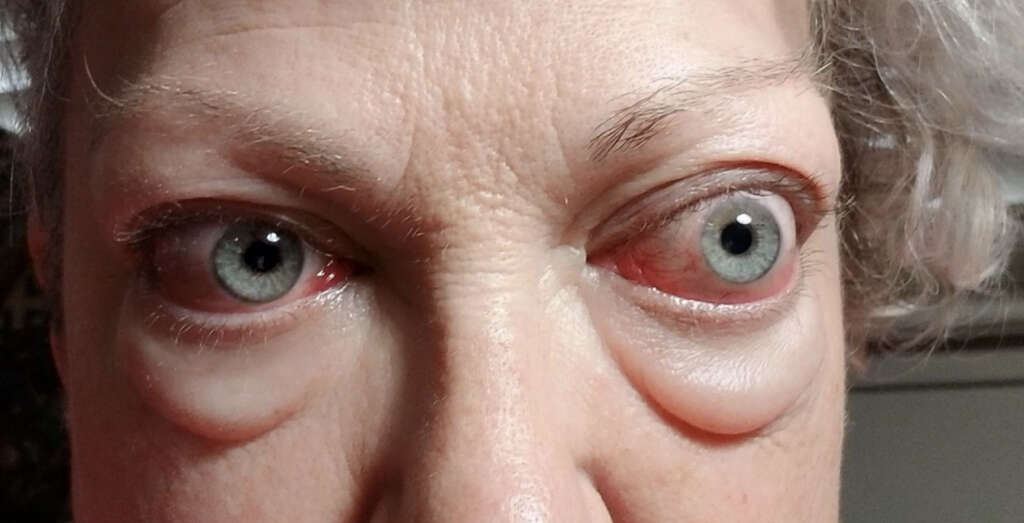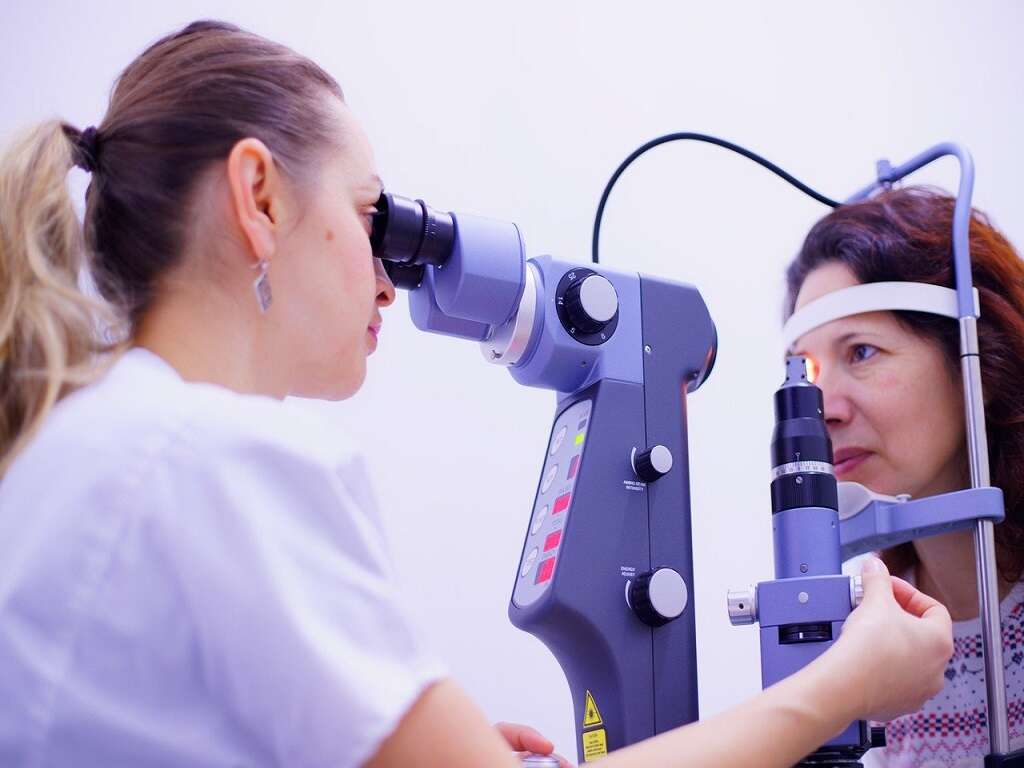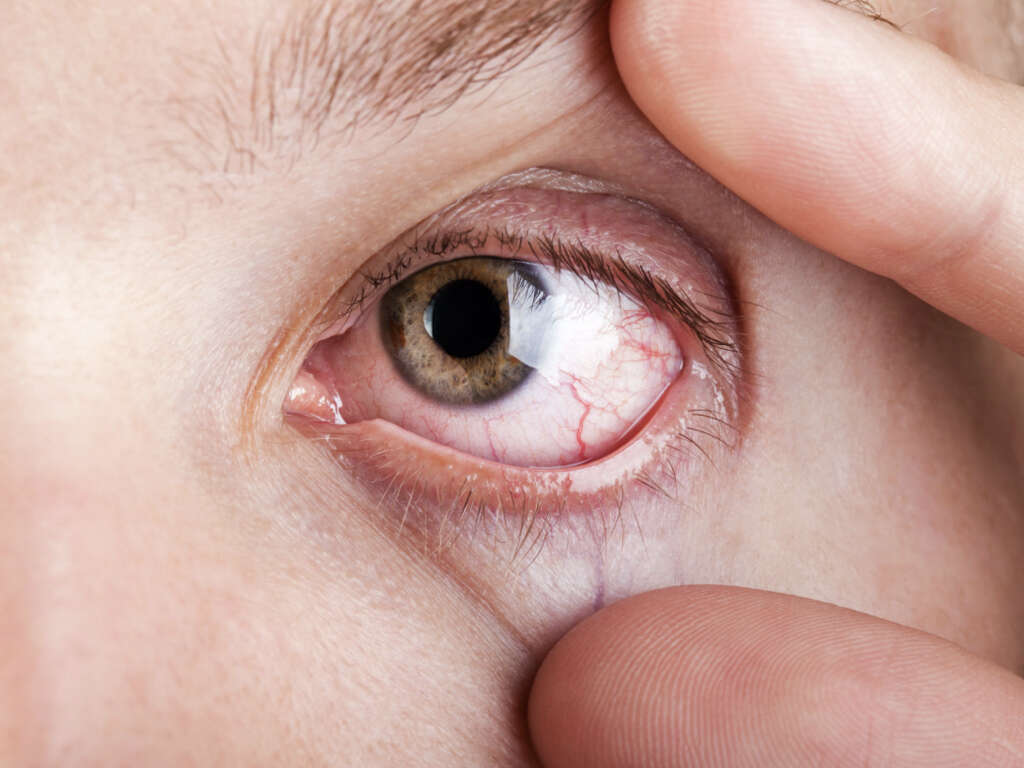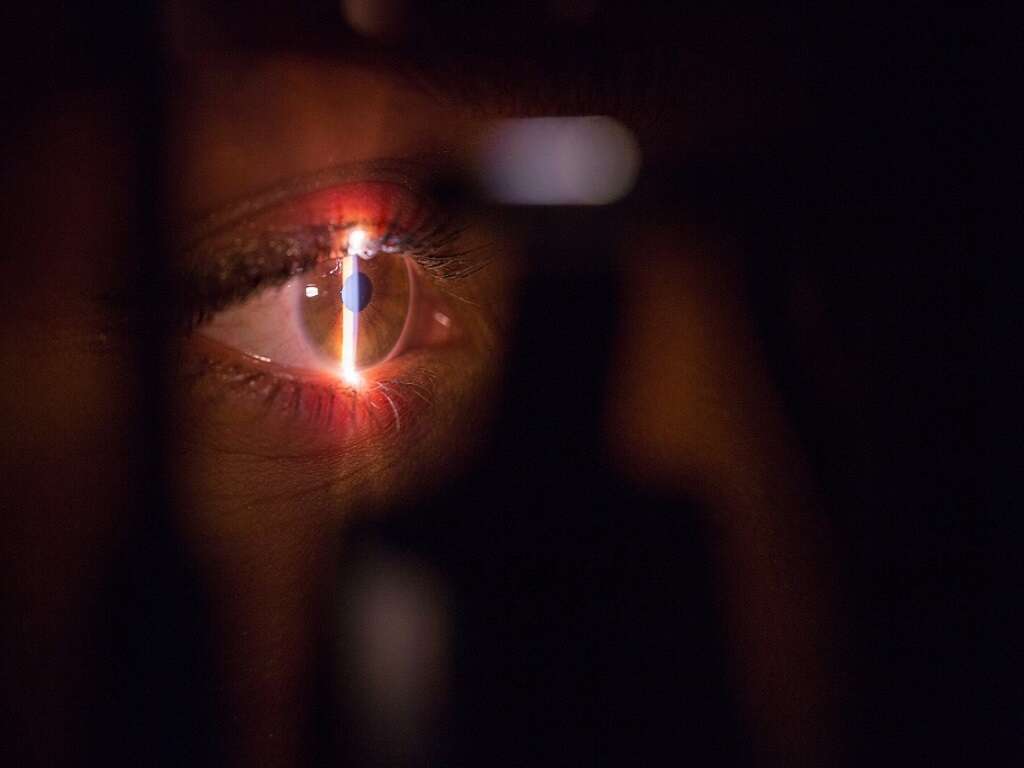10 Common Causes of Double Vision
 Article Sources
Article Sources
- 1. Edsel B Ing, M. (2020, June 11). Ophthalmologic Manifestations of Myasthenia Gravis. Retrieved November 18, 2020, from https://emedicine.medscape.com/article/1216417-overview
- 2. Neeraj N Mathur, M. (2020, May 12). Orbital Fractures. Retrieved November 18, 2020, from https://emedicine.medscape.com/article/867985-overview
- 3. Suhr, C. L., OD, Chubb, L., OD, & Himmelein, L., OD. (2019, August 15). Top Causes of Double Vision. Retrieved November 18, 2020, from https://www.reviewofoptometry.com/article/top-causes-of-double-vision
5. Thyroid Eye Disease
Thyroid eye disease or Graves’ ophthalmopathy is a manifestation of Graves’ disease, which is an autoimmune condition that results in the enlargement of the gland and the overproduction of thyroid hormones (hyperthyroidism). As a result, the body enters a hypermetabolic state (i.e. fast pulse, sweating, heat intolerance, weight loss). In part, this occurs because the thyroid gland is constantly stimulated by circulating immune proteins (autoantibodies) that target specific receptors. However, this immune response can also target the eye muscles and the fat within the eye socket, resulting in an inflammatory process that produces the swelling and scarring of those tissues.
People with Graves’ ophthalmopathy can develop several signs and symptoms, including binocular diplopia or double vision. This symptom is a sign of severe disease and it is caused by the inflammation and thickening (scarring) of the muscles that move the eyes within the socket. This interferes with eye movement and causes diplopia.
Advertisement











